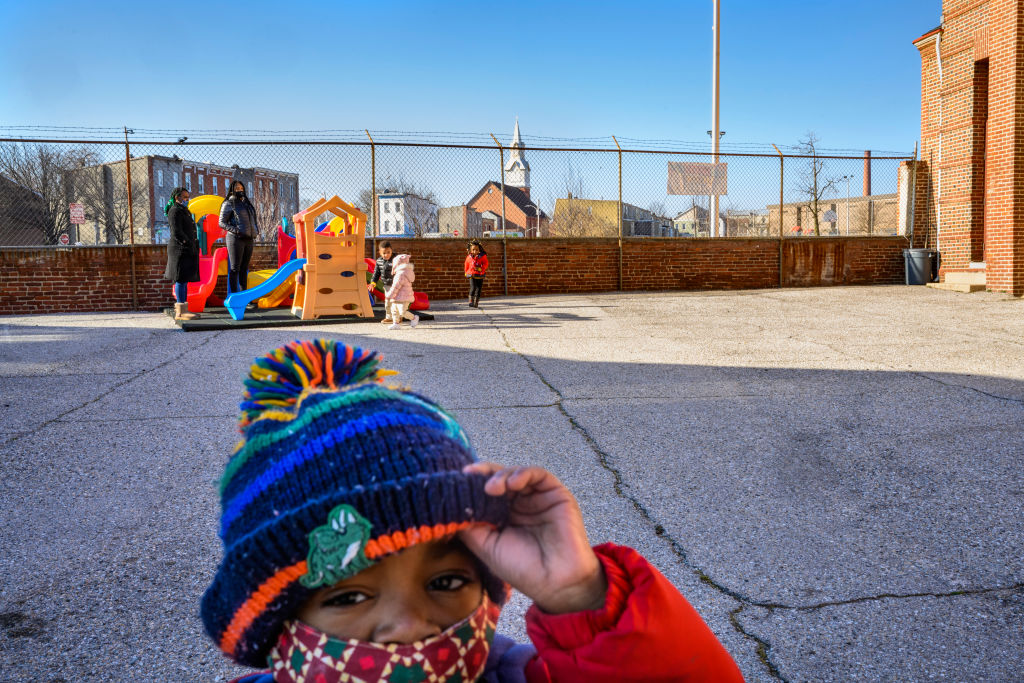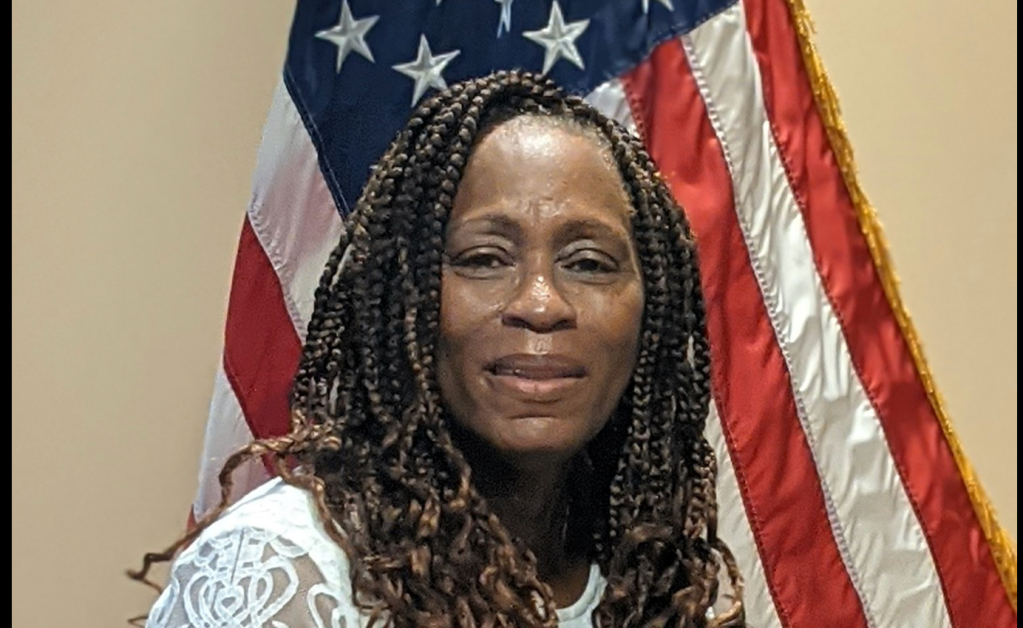
Children are shown at Little Flowers Early Childhood and Development Center in the Sandtown-Winchester neighborhood of Baltimore, Maryland, on January 12, 2021. | Source: The Washington Post / Getty
Child care workers earn an average of $13.22 an hour. Early childhood education and care, so from birth through kindergarten, is so underfunded that many families who need care are unable to access it. This leaves families, providers and businesses vulnerable. That’s why Community Change is hosting a national Day Without Child Care on Monday, May 13. The following is a snapshot of quotes from providers, parents and advocates highlighting why the day matters and what parents and providers hope to accomplish.
Alabama
Kishia Saffold, owner of Kiddie Care Learning Center:
“Insurance companies are withdrawing from the child care market. My costs have tripled this year. I pay $60,000 per year for insurance. It’s only a matter of time until the system implodes.”
Lenice Emanuel, executive director of the Alabama Institute for Social Justice:
“We’ve always understood the connection between child care and Alabama working. We’ve always understood the connection between child care and essential workers being able to care for their families.”
“There are no efforts to hear what providers need. Offering grants that exacerbate their financial situation is not a solution.”
California
Mary Ignatius, executive director of Parent Voices California:
“In 2022, only one in nine of California’s children eligible for child care actually received services. The number of children eligible for subsidized child care has grown from 1,479,000 in 2015 to 2,161,000 in 2022.
“Black educators are overrepresented among home-based providers in California, who are more likely to face resource shortages and economic distress.”
District of Columbia
LaDon Love, executive director of SPACEs in Action:
“According to the 2022 National Survey of Children’s Health, thirteen percent of children under five in D.C. had a parent either quit their job, refuse a job offer, or otherwise have to adjust terms of employment because of problems with child care. Stabilizing the childcare workforce is necessary to allow parents and caregivers to earn a living while knowing their children receive the care and support they need to thrive.”
Minnesota
Shawntel Gruba, owner of Iron Range Tikes Learning Center and a leader with Kids Count on Us:
“I’ve worked in child care for over 23 years. I want to work in this field for at least 23 years, but if we don’t engage in radical action to push for radical change, that’s going to be impossible.”
“Child care must be treated as the public good that it is.”
“We are the workforce behind the workforce. Without us, no one goes to work.”
Ohio
Tami Lunan, director of The CEO Project:
“Affordable, quality child care makes it possible for parents to go to work, knowing that the most precious people in our lives are in good hands. Yet it’s some of the most invisible and undervalued work. It’s time to invest in expanding affordable, quality child care with living wages for the hardworking child care providers who care for and nurture our children.”
West Virginia
Amy Jo Hutchison, organizer with MomsRising and Rattle the Windows:
“West Virginia has the lowest workforce participation in the nation. It’s frustrating that the legislature doesn’t acknowledge that child care would be the quickest way to address this issue.”
SEE ALSO:
Day Without Child Care: How D.C. Mayor Bowser’s 2025 Budget Is Bad For Families And The Economy
The post A National Day Without Child Care: Black Providers, Parents Explain Urgency Of The Moment appeared first on NewsOne.

